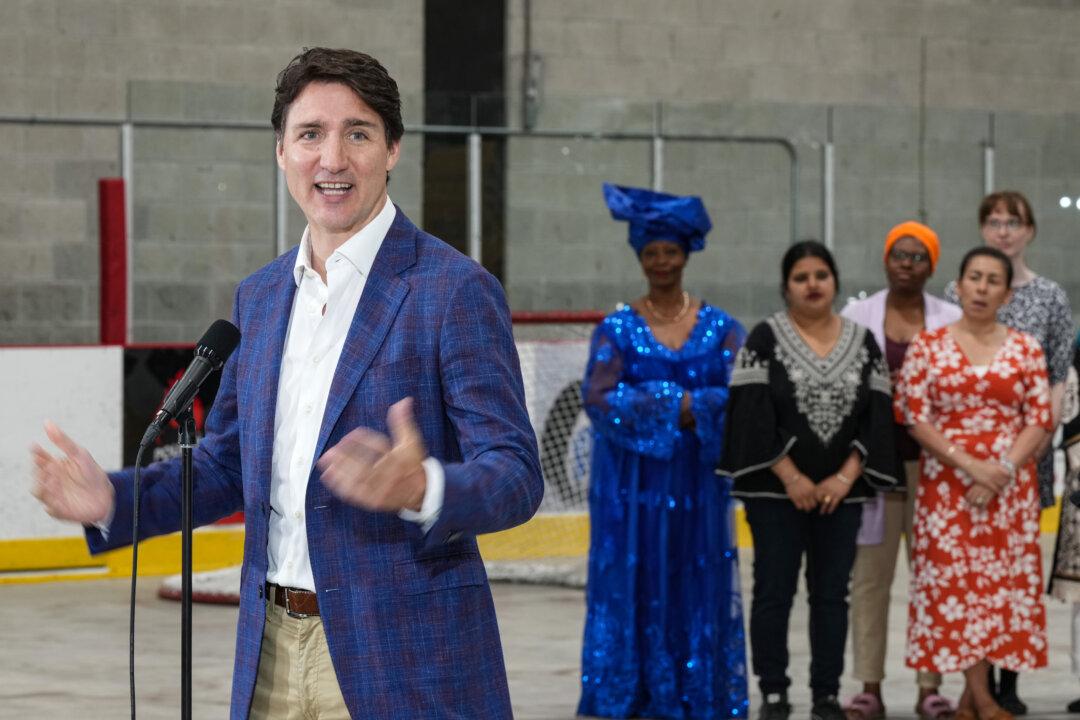After putting to rest in recent days the possibility he could step down, Prime Minister Justin Trudeau says he’s listening to his caucus but would not say whether he would call an in-person meeting.
“I’m in the process of listening to the whole caucus, and not just from [members] who speak to media,” Mr. Trudeau said in French while making an announcement in his Montreal riding of Papineau on July 3.





